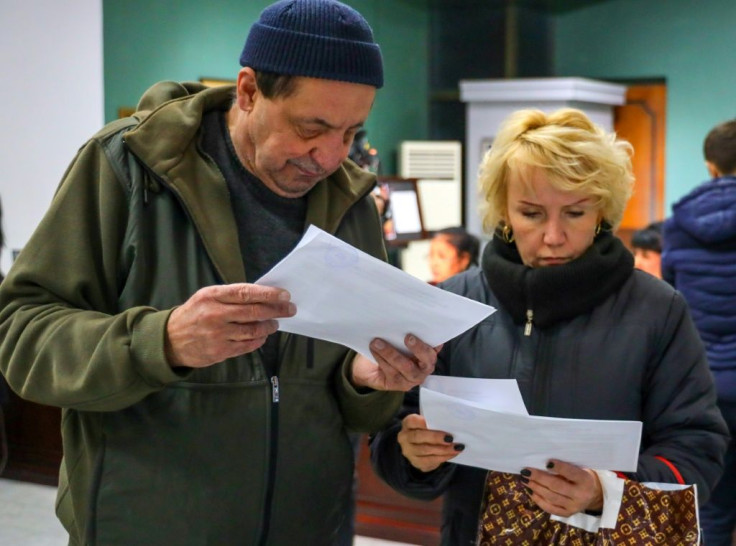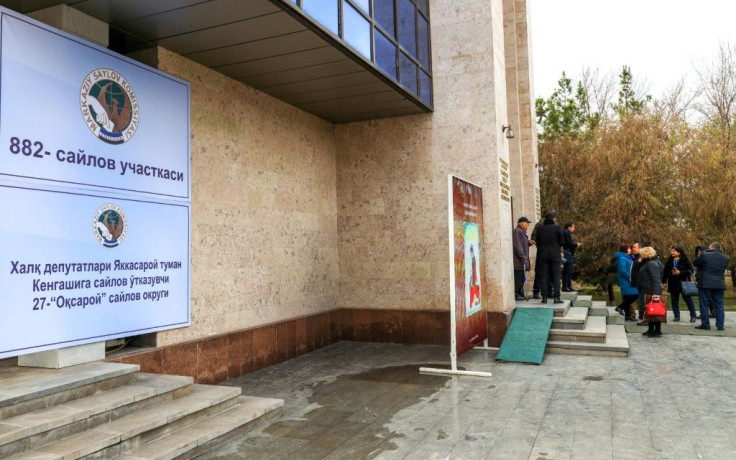International Monitors Slam 'Lack Of Real Contest' In Uzbek Polls

All five pro-government parties competing in Uzbekistan's first elections under President Shavkat Mirziyoyev took seats in the country's parliament, preliminary results showed Monday, with international monitors criticising the "lack of real contest."
Mirziyoyev, who took charge of Central Asia's most populous state in 2016 after the death of hardline predecessor and former patron Islam Karimov, described Sunday's vote as "historic."
But the election lacked opposition representatives and all five parties competing were already represented in the outgoing legislature, which is known for rubber-stamping government policy.
A monitoring mission by the Organization for Security and Co-operation in Europe (OSCE) acknowledged that the atmosphere in which the vote took place was freer compared to past Uzbek elections.
They also took note of reforms to electoral law.
But the organisation also said on Monday that such progress "did not offset the absence of opposition parties, a continuing lack of respect for fundamental rights, and some serious irregularities on election day."
Results based on voting in 128 out of 150 districts announced by the central election commission showed the Liberal Democratic Party of Uzbekistan leading with 43 seats in the 150-member lower house.
Milli Tiklanish, known in English as the National Revival Democratic Party, trailed it with 35.
The People's Democratic Party, the Social Democratic Party also known as Adolat and the Ecological Movement of Uzbekistan also secured seats in the parliament.
In the remaining 22 districts, "candidates were not able to get enough (votes)," said the chairman of the central election commission, Mirza-Ulugbek Abdusalomov.
Fresh elections would have to be held in those districts, he said.

Mirziyoyev has been lauded for doing away with many of Karimov's authoritarian excesses, releasing some political prisoners, battling forced labour and opening up the landlocked state to tourism and foreign investment.
The election was held under the slogan "New Uzbekistan, new elections" as authorities sought to portray them as the latest example of a newfound openness.
In the capital Tashkent, residents said they wanted to see more from elected officials and voiced concerns that they would not have dared express under Karimov, who ruled for almost three decades.
Aleksandr Kim, a 60-year-old community leader, said local officials had initiated a last-minute push to persuade people to participate but noted that many did not understand the purpose of the election.
"People do not know who they are voting for," Kim told AFP.
Karimov was often criticised by international watchdogs over torture and forced labour allegations.
Mirziyoyev has continued to honour Karimov publicly, but has been credited with eradicating much of the slavery in the cotton sector and lifting Uzbekistan out of isolation, albeit while eschewing pluralism.
Britain's influential magazine The Economist has named Uzbekistan as its country of the year, saying "no other country travelled so far" in 2019.
Yet the reform drive has so far not allowed real competition to Mirziyoyev, 62, to develop.
© Copyright AFP 2024. All rights reserved.




















